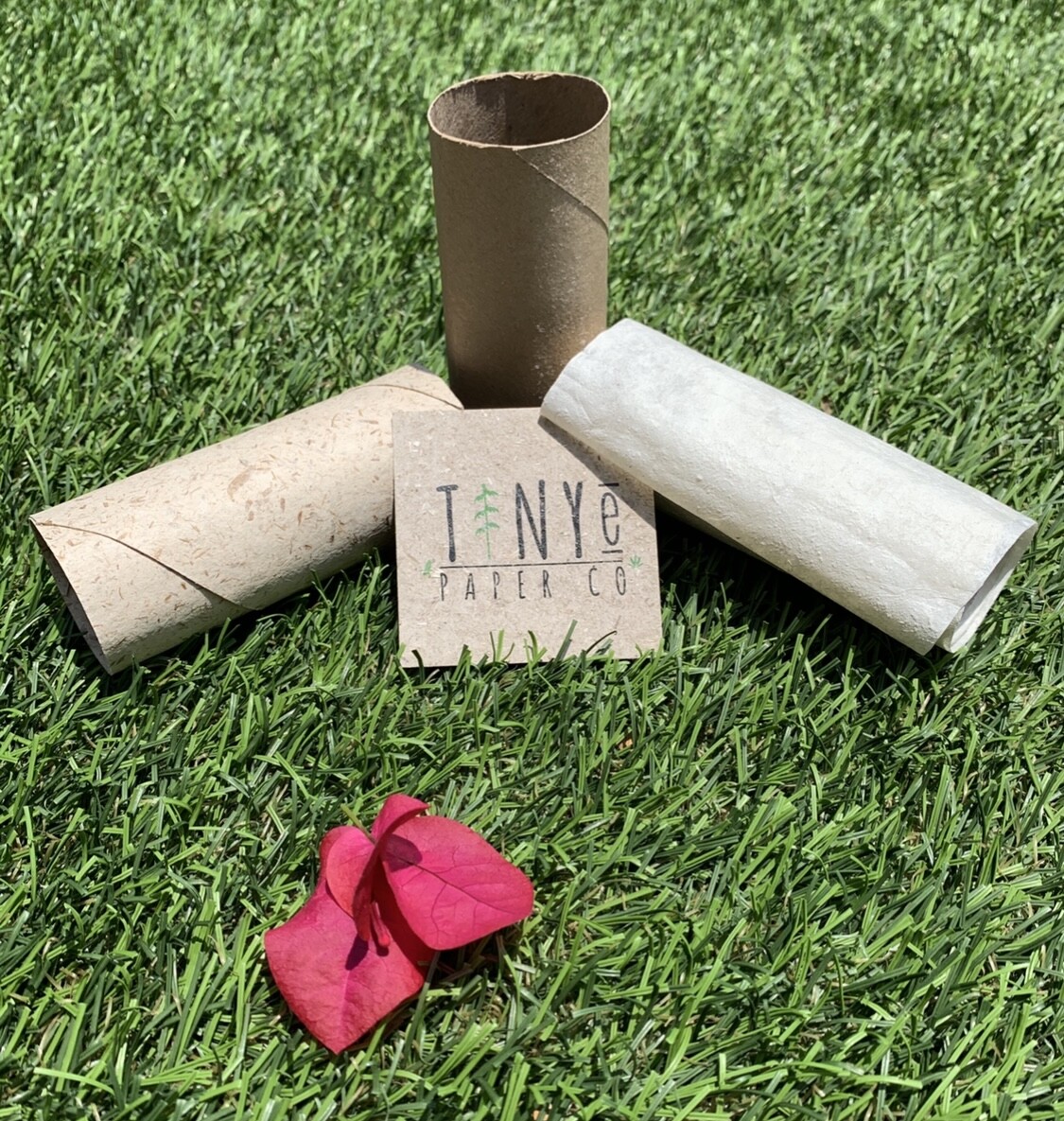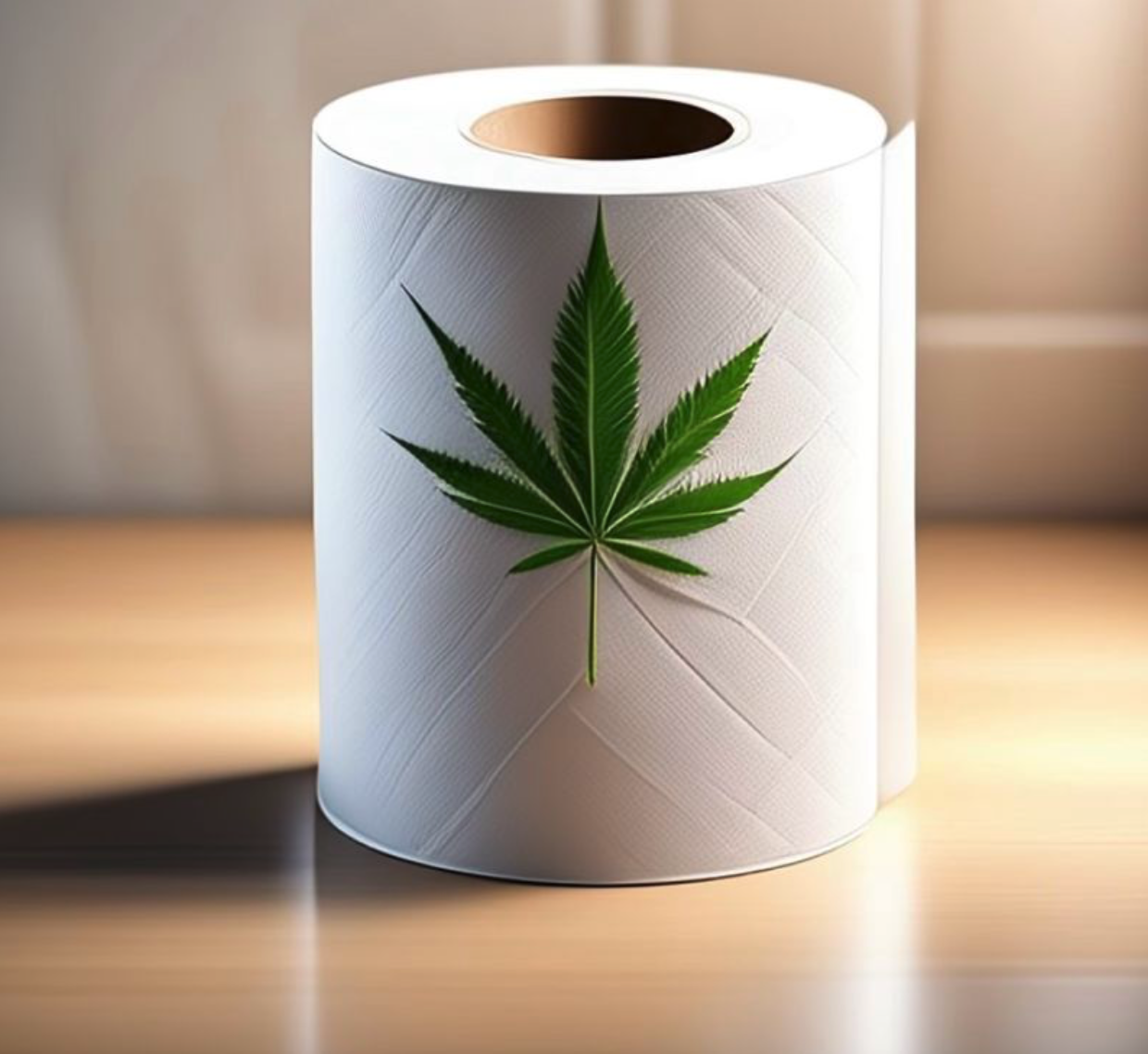Opinion: Rolling Toward a Greener Future: The Case for Industrial Hemp Toilet Paper
LOS ANGELES–When most people think about sustainability, they imagine renewable energy, electric cars, or organic farming. I don’t know many who stop to consider the humble roll of toilet paper. But TP production has a significant environmental cost, and the way we make and use it shows how everyday choices affect forests, water, and the climate.
Why Toilet Paper Matters
We all use toilet paper every single day. Global demand rises each year, with projections estimating a $40 billion market by 2030. The average American uses about 141 rolls annually, costing the earth 10 million trees each year.
Resource Use in Traditional Toilet Paper
- Trees: A single roll requires 1.5 pounds of wood, much from slow-growing forests vital for biodiversity and carbon storage.
- Water: About 37 gallons are used per roll, a critical issue as water scarcity grows.
- Chemicals: Chlorine bleaching and additives pollute waterways and create forever toxins.
Toilet paper is a fantastic example of a linear economy: extract resources, process them, use once, and discard. This model consumes huge amounts of resources without offering a regenerative path.
(Image: The author and business owner: Erica Halverson)
Introducing Industrial Hemp
Industrial hemp is one of humanity’s oldest cultivated plants, used for textiles, ropes, sails, and paper for thousands of years.
What makes industrial hemp unique today is its environmental profile. Unlike trees, which take decades to mature, industrial hemp grows in just 90 to 120 days. Its roots improve soil health, and it requires less water and no pesticides compared to many conventional crops. Industrial hemp also captures carbon way more efficiently, absorbing more CO₂ per acre than most forests.
Plant Structure
- Bast fibers (outer stalk): strong fibers for textiles and paper, including toilet paper.
- Hurd (inner core): woody material for building, bedding, and Hempcrete.
- Leaves/seeds: sources for food, oils, and supplements.
Every part of the industrial hemp plant can be used, making it ideal for closed-loop systems where little to no waste is produced.
Industrial Hemp Toilet Paper as a Closed-Loop Product
Industrial hemp toilet paper is one of the few closed-loop industrial hemp products in the cannabis industry. But, what does that mean?
- Cultivation: Farmers grow industrial hemp for multiple uses, fiber, grain, or cannabidiol (CBD). Stalks that might otherwise be discarded can become raw material for paper.
- Processing: The stalks are pulped into fibers. Unlike wood pulp, this requires significantly less water and no harsh chemicals.
- Production: Fibers are turned into soft, durable toilet paper, with modern processing ensuring comfort and quality.
- End of Life: The product is used and flushed, returning harmlessly to wastewater systems without leaving behind plastics or forever toxins.
This cycle represents a shift from extractive to regenerative thinking. Instead of cutting down trees for a single-use product, we’re repurposing a fast-growing plant in a way that minimizes waste.
ESG Benefits of Industrial Hemp Toilet Paper
Industrial hemp toilet paper aligns with Environmental, Social, and Governance (ESG) principles. It will be the first hygiene product to do so.
Environmental
- Deforestation prevention: Replacing tree pulp with industrial hemp protects old-growth forests that are critical for biodiversity.
- Water savings: Pulping industrial hemp requires up to 75% less water compared to trees.
- Carbon capture: Industrial hemp absorbs around 10 tons of CO₂ per acre during its growth cycle.
Social
- Agricultural opportunities: Industrial hemp farming provides new revenue streams for rural and marginalized communities, particularly in regions where traditional crops are struggling.
- Health benefits: Industrial hemp toilet paper is free of chlorine bleach and other harsh chemicals, it is hypoallergenic, antibacterial and gentler for consumers.
- Socioeconomic empowerment: Placing cultivation, pulping, and manufacturing hemp TP in marginalized communities creates stable jobs, builds skills, and redirects wealth to historically excluded areas.
Governance
- Traceability: Industrial hemp supply chains will be more transparent, especially with growing demand for verified ESG reporting.
- Circular innovation: Developing products that close resource loops aligns with global sustainability frameworks, including the United Nations’ Sustainable Development Goals (SDGs).
Comparing Options: Trees, Bamboo, and Industrial Hemp
Not all fibers are sustainably equal.
- Trees: Long growth cycles (20-50 years), high water use, heavy chemical input.
- Bamboo: Grows faster (3-5 years) but often farmed in monocultures, reducing biodiversity, pulping remains resource-intensive, high carbon transport footprint.
- Industrial Hemp: Fast growth (3-4 months), regenerative farming, and potential zero-waste across industries.
Bamboo is a greenwashed bandaid, but industrial hemp is a holistic, closed-loop solution.

The Role of the Cannabis Industry
Industrial hemp TP is more than a consumer good; it represents a new pathway for the broader cannabis industry. Many products, flower, edibles, oils, create packaging waste and face market volatility and saturation.
By creating closed-loop industrial hemp products, the industry can demonstrate leadership in sustainability, diversify revenue, and shift public perception. Industrial hemp toilet paper is a simple, universal product that connects cannabis innovation to mainstream environmental solutions.

Looking Ahead
As sustainability becomes central to consumers, governments, and investors, demand for industrial hemp toilet paper will grow. Imagine a future where:
- Supermarkets carry industrial hemp rolls alongside recycled and bamboo options.
- Schools, corporations, and government entities adopt industrial hemp TP as part of ESG commitments.
- Farmers integrate industrial hemp into rotations, restoring soil and creating multiple income streams.
- Marginalized communities become hubs for industrial hemp manufacturing, showing how green innovation can also drive equity.
This future is not far off. TINY e TOILET PAPER is out to prove Industrial hemp toilet paper is a viable, scalable alternative, combining ancient agricultural wisdom with modern sustainability priorities. Toilet paper may not be glamorous, but it offers an everyday opportunity to make a measurable impact. Industrial hemp TP presents a different path: regenerative, efficient, and aligned with ESG principles.
As one of the only closed-loop industrial hemp products within the cannabis industry, it highlights how innovation can turn even the most ordinary items into powerful tools for sustainability. And when production is rooted in marginalized communities, it also becomes a model for how sustainable industries can drive both environmental and social progress.
All of this with something as simple as a roll of toilet paper.





































